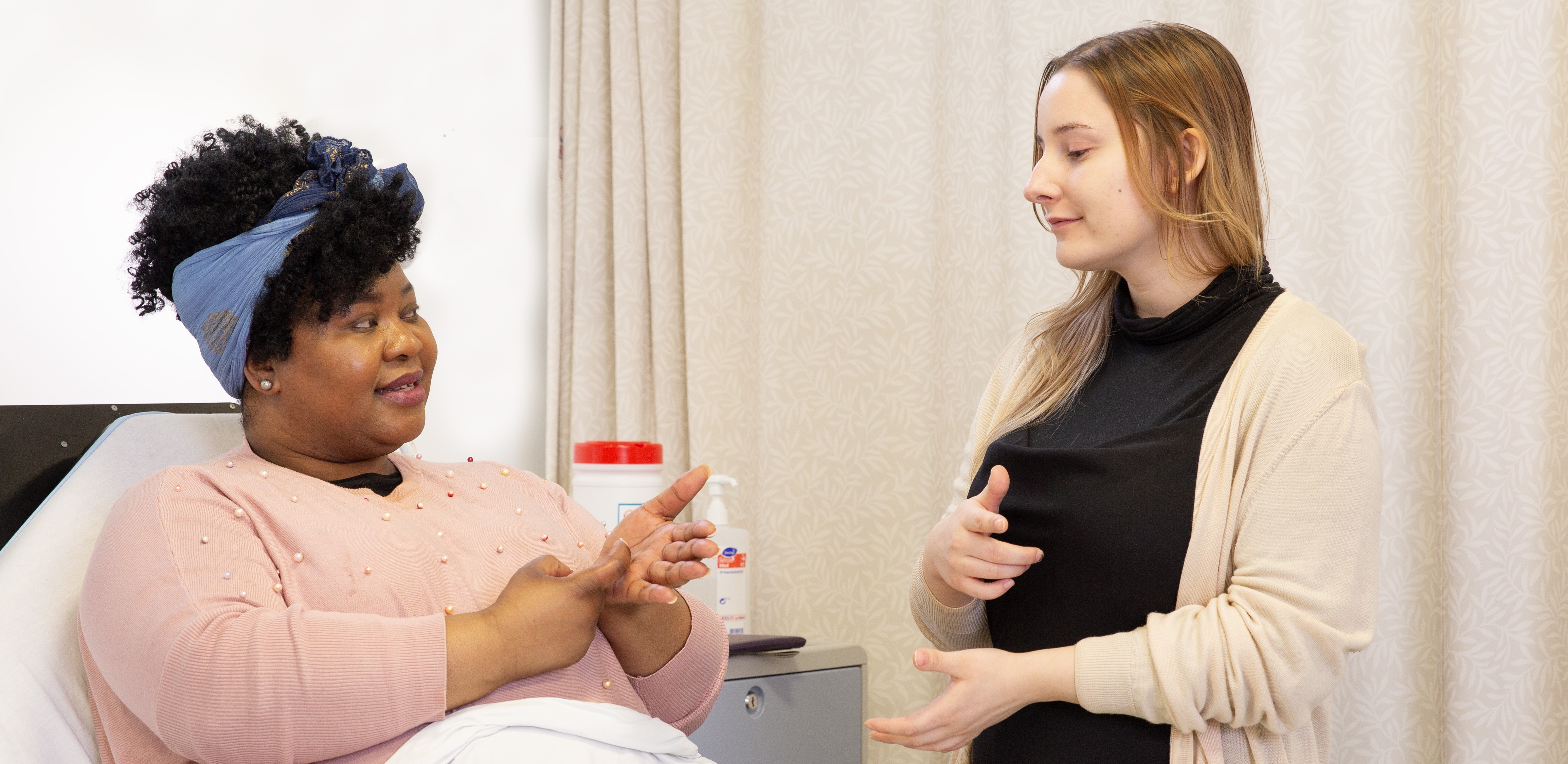Understanding the Deaf Patient Experience: Combatting Loneliness and Isolation
For Loneliness Awareness Week (9 to 15 June,) we’re highlighting help for our Deaf patients to help combat loneliness and isolation.
Imagine being on holiday and falling ill. You find yourself needing medical attention, only to discover that most of the health and social care staff cannot communicate with you. You struggle to understand and feel isolated and powerless. This scenario is temporary for most, but for Deaf people, particularly British Sign Language (BSL) users, it’s a daily reality.
The Deaf community is particularly affected by loneliness and social isolation. Many Deaf people are excluded from everyday conversations, social interaction, and essential services. Without accessible communication, it’s all too easy for them to be left out and left behind.
Paul Hull, Health Improvement Practitioner said: “Deaf individuals often have poorer health outcomes than the general population. Communication barriers can cause misunderstandings, misdiagnoses and missed appointments. Deaf caregivers of hearing relatives also can often face communication barriers when healthcare and social staff are unable to provide interpreters, if the patient is hearing.”
In Glasgow City Health and Social Care Partnership (HSCP) we are actively listening to the Deaf community and taking meaningful steps to ensure equal access to care.
Paul continued: “Thanks to improvements in technology, learning and accessing BSL is easier than ever, and several initiatives are helping to make healthcare more accessible for Deaf people. Our patients and service users can ask our staff to book a BSL interpreter for appointments. This is particularly ideal for medical appointments, such as seeing a GP or discussing care plans. Most BSL users have a preference for face-to-face interpreters rather than online interpreting, as it allows for better communication and a more accurate understanding of the conversation.”
Contact Scotland BSL is a free video relay service funded by the Scottish Government. It allows hearing people to contact Deaf BSL users through a remote interpreter. Deaf individuals must register to use the service.
For example, when a Deaf person needs to make an appointment with their GP, they can open the Contact Scotland app on their smartphone. A BSL interpreter appears on screen and asks who they would like to call. The Deaf person signs the GP’s name and phone number, and the interpreter places the call, explaining they’re relaying the call on behalf of a Deaf patient. The interpreter is bound by the Data Protection Act, ensuring patient confidentiality.
This service can also be used by health and social care staff to contact Deaf patients — such as notifying them of appointment changes or confirming details — by calling Contact Scotland directly and asking to speak with the patient.
BSL is one of the fastest-growing languages in the UK, with increasing public interest in learning it. If you're interested in learning BSL, please search for “BSL Classes in Scotland” on Google to find the latest classes.
To support Deaf people’s mental health, Lifelink offers specialist counselling, including access to a Deaf counsellor who understands the unique experiences of loneliness and isolation within the Deaf community. This service is open to both BSL and non-BSL users.
BDA Loneliness and Isolation is a programme developed by the British Deaf Association focused on tackling loneliness within the BSL community.
Marmalade Trust is a charity dedicated to raising awareness of loneliness and leading an annual campaign to reduce the stigma surrounding it.

